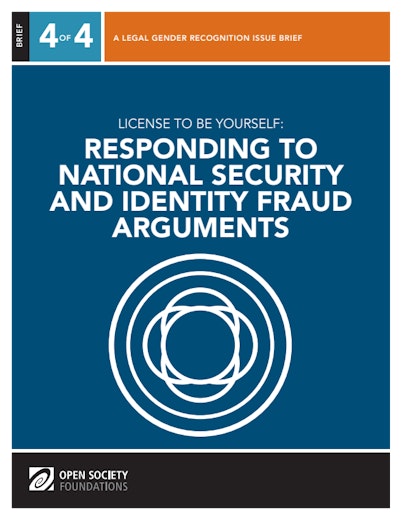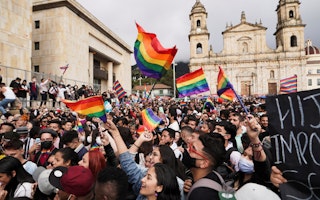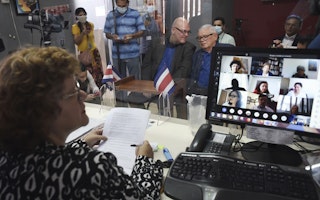Gender Identity Recognition at the Border and Beyond
By Lisa Skeen

The day after Donald Trump was elected president of the United States, trans activists began mobilizing to help people obtain or update their passports—fearing possible reversal of a 2010 State Department policy that made it easier to change one’s gender marker on passports. The hashtag #TransLawHelp went viral as attorneys throughout the country offered free legal help to people hoping to update their passports and other identity documents before President Trump’s inauguration, and the website Trans Law Help was created to coordinate the overwhelming response.
The post-election scramble for passports highlights a crucial concern for transgender and intersex people in the United States, and around the world. Identity documents that accurately reflect a person’s gender are necessary in order to ensure the ability to safely cross borders and to access social, financial, and medical services.
According to Kris Hayashi of the Transgender Law Center, “Whether going through airport security, voting, or applying for a bank account, everyone needs an accurate ID to safely navigate life. Yet outdated laws and other barriers have blocked almost 70 percent of transgender people [in the United States] from updating any of their identity documents, and one-third of transgender people have been harassed, assaulted, or turned away when seeking basic services.”
In many places, it remains difficult or even impossible for people to obtain legal identity documents that match their gender identities. This exposes trans and intersex people to discrimination, and undermines their human rights to personal security, privacy, and freedom from inappropriate searches. Trans and intersex people are especially vulnerable when crossing borders, as they may be detained or singled out for suspicion because of inaccurate documentation or a lack of awareness of bodily diversity.
From Argentina to Malta, the last five years have seen significant legal victories for the rights of trans people worldwide. Unfortunately, these gains are complicated—or undermined—by the differences that exist between national gender recognition policies. For example, a number of countries, including India, Malta, and New Zealand, permit people to obtain passports with a third or neutral gender category, but travelers carrying those passports may face difficulties when traveling to countries that do not recognize nonbinary genders.
These challenges are compounded as airport and border security continue to intensify due to counterterrorism measures and restrictions on immigration. Trans refugees—many of them fleeing violence and discrimination because of their gender identities—face additional risks navigating the asylum and resettlement process.
The Open Society Foundations have long supported trans and intersex organizations throughout the world in their fight for rights-based legal gender recognition legislation. In 2014, we published License to Be Yourself, a report documenting progressive and rights-based laws and policies that enable trans people to change their gender identity on official documents. The report and a series of subsequent issue-specific briefs share legal arguments and strategies that activists have successfully used to win reforms that make it easier for people to obtain the documents they need.
Today, we are releasing the fourth and final brief in the series, License to Be Yourself: Responding to National Security and Identity Fraud Arguments. Opponents of progressive gender recognition laws and policies often base their objection on concerns that allowing people to change their identity documents will undermine national security and increase the risk of identity fraud.
The brief outlines responses to these arguments, showing that there are ways to deal with these risks that do not violate trans and intersex people’s human rights. Moreover, as the brief points out, countries that allow people to amend their identity documents based on self-determination—like Argentina, Denmark, and Australia—have not reported higher levels of fraud or security risk as a result.
Trans and intersex people and their allies in the United States will remain mobilized to face down challenges to legal gender recognition under the Trump administration. Progressive legislation at the state level offers one source of hope—for instance, California Senate Bill 179, introduced in January, proposes streamlining the process for Californians to apply for changes in gender on identity documents and creating a third, nonbinary gender category for state documents. And in December, New York City issued the nation’s first intersex birth certificate.
The examples of successful advocacy highlighted in the License to Be Yourself series offer additional resources for activists in the United States and beyond working to ensure that trans and intersex people’s rights to security, privacy, and self-determination are respected.
Until November 2021, Lisa Skeen was a program coordinator for the Open Society Public Health Program.


